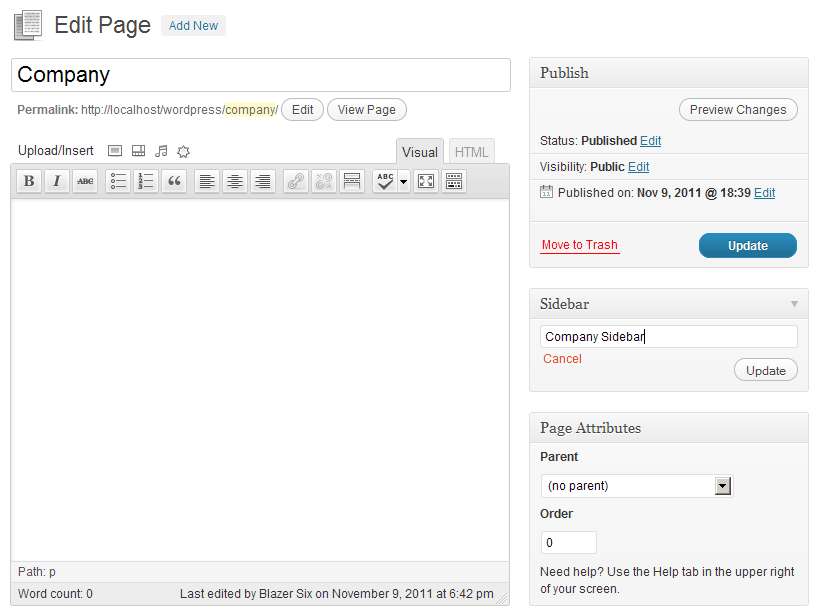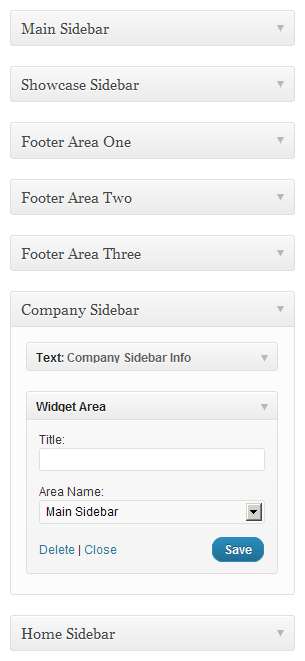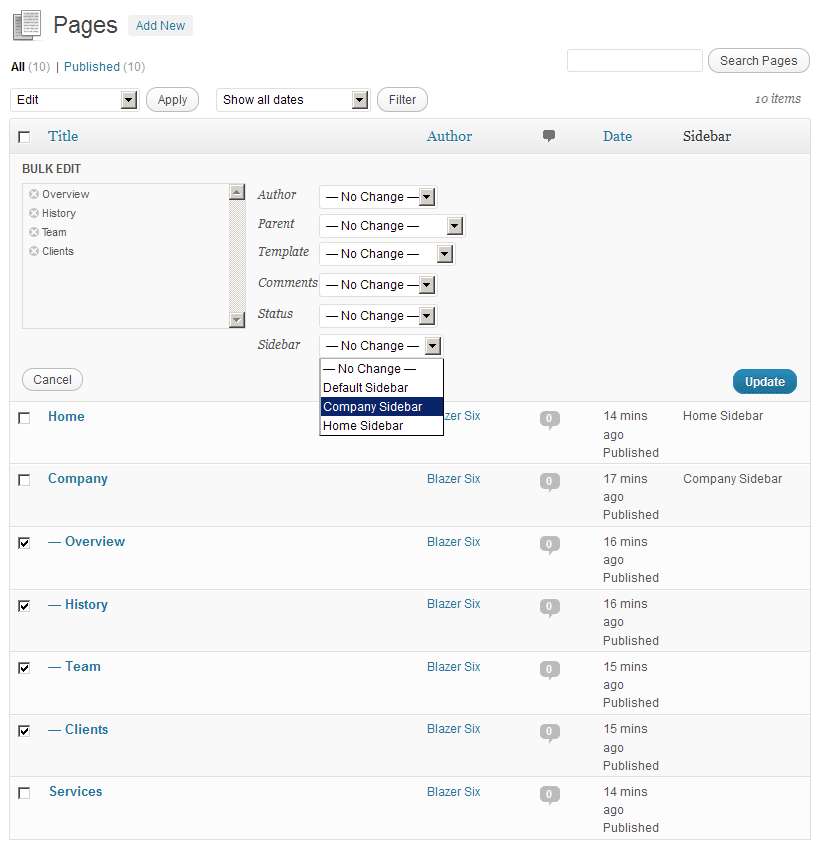Description
Designed for simplicity and flexibility, Simple Page Sidebars gives WordPress users, designers, and developers the ability to assign custom sidebars to individual pages–without making any template changes. Existing sidebars can also be assigned in quick edit and bulk edit modes, helping save you time.
In contrast to some of the more complicated plugins available, Simple Page Sidebars aims for basic, core-like functionality and integration that’s easy to use without polluting your admin panel. And due to the way sidebars are saved, it utilizes built-in WordPress caching, so your site won’t be bogged down with additional queries.
Simple Page Sidebars also ships with a “Widget Area” widget for pulling all the widgets from one sidebar into another.
Benefits
- No more site-wide, generic sidebars. Each page (or section) can have its own widgets.
- Complete control over the names of your custom sidebars.
- Assign the same sidebar to multiple pages.
- Modify a page’s sidebar without creating an unnecessary revision.
Advanced Usage
If you want to assign custom sidebars to archive pages or replace multiple sidebars per page, this plugin likely won’t be the best solution. However it’s flexible enough to handle a wide range of page-based use cases. It can even be configured to work with Custom Post Types by adding a couple lines of code:
function myprefix_init() {
add_post_type_support( '{{post_type}}', 'simple-page-sidebars' );
}
add_action( 'init', 'myprefix_init' );
Additional Resources
Notes
Custom Loops
If your page has any custom loops or queries, they need to be followed by wp_reset_query(), otherwise the global $post variable will no longer reference the correct post and by the time the sidebar is displayed, Simple Page Sidebars won’t know which page is being viewed, possibly leading to an unexpected sidebar being displayed.
Theme Sidebars
Some themes register different sidebars for their page templates, which means there isn’t a default sidebar that can be replaced. To use Simple Page Sidebars in this instance, you can create a child theme and force page templates with custom sidebars to use the default sidebar.




